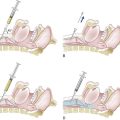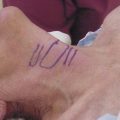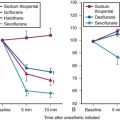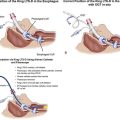Mild Traumatic Brain Injury (MTBI), commonly known as concussion, is a prevalent form of brain injury that can occur due to various causes, including sports-related activities, falls, motor vehicle accidents, and physical assaults. Prompt and accurate diagnosis of MTBI is crucial for appropriate management and treatment. MTBI testing encompasses a range of assessments and evaluations designed to identify and assess the severity of brain injury. In this blog, we’ll provide an overview of MTBI testing, including common assessment tools and diagnostic methods used by healthcare professionals.
Clinical Evaluation:
The initial step in MTBI testing involves a thorough clinical evaluation conducted by a healthcare provider, such as a physician, neurologist, or sports medicine specialist. The healthcare provider will perform a comprehensive physical examination, including neurological tests, to assess the patient’s cognitive function, motor skills, coordination, balance, and reflexes. The evaluation may also involve a review of the patient’s medical history, symptoms, and circumstances surrounding the injury.
Symptom Assessment:
Symptom assessment is a critical component of MTBI testing, as symptoms can vary widely depending on the severity and location of the brain injury. Common symptoms of MTBI may include headache, dizziness, confusion, memory problems, sensitivity to light or noise, irritability, and changes in mood or behavior. Healthcare providers use standardized symptom scales, such as the Post-Concussion Symptom Scale (PCSS) or the Rivermead Post-Concussion Symptoms Questionnaire (RPQ), to assess and monitor the patient’s symptoms over time.
Cognitive Testing:
Cognitive testing is another essential aspect of MTBI assessment, focusing on evaluating the patient’s cognitive function, memory, attention, and processing speed. Various neuropsychological tests and assessments may be administered to assess different aspects of cognitive function, including:
- The Standardized Assessment of Concussion (SAC)
- The Immediate Post-Concussion Assessment and Cognitive Testing (ImPACT)
- The Montreal Cognitive Assessment (MoCA)
- The CogSport Cognitive Test Battery
These tests help healthcare providers identify cognitive deficits and track the patient’s recovery progress following MTBI.
Imaging Studies:
While most MTBI cases do not result in visible abnormalities on standard imaging studies such as CT scans or MRIs, imaging studies may still be recommended in certain cases to rule out more severe brain injuries, such as hemorrhage or contusion. Advanced imaging techniques, such as diffusion tensor imaging (DTI) or functional MRI (fMRI), may also be used to assess subtle changes in brain structure and function associated with MTBI.
Balance and Vestibular Testing:
Balance and vestibular testing are important components of MTBI assessment, as vestibular dysfunction and balance disturbances are common symptoms of concussion. Healthcare providers may perform objective balance assessments, such as the Balance Error Scoring System (BESS) or computerized posturography, to evaluate the patient’s balance and postural stability. Vestibular function tests, including vestibular ocular reflex (VOR) testing and vestibular evoked myogenic potential (VEMP) testing, may also be used to assess vestibular function and identify impairments.
Final Words
MTBI testing plays a crucial role in the diagnosis and management of mild traumatic brain injury, allowing healthcare providers to identify and assess the severity of brain injury, monitor symptoms, and track recovery progress. By utilizing a combination of clinical evaluation, symptom assessment, cognitive testing, imaging studies, and balance/vestibular testing, healthcare professionals can provide comprehensive care for patients with MTBI and help facilitate optimal recovery outcomes. Early identification and appropriate management of MTBI are essential for minimizing long-term complications and promoting successful rehabilitation.






